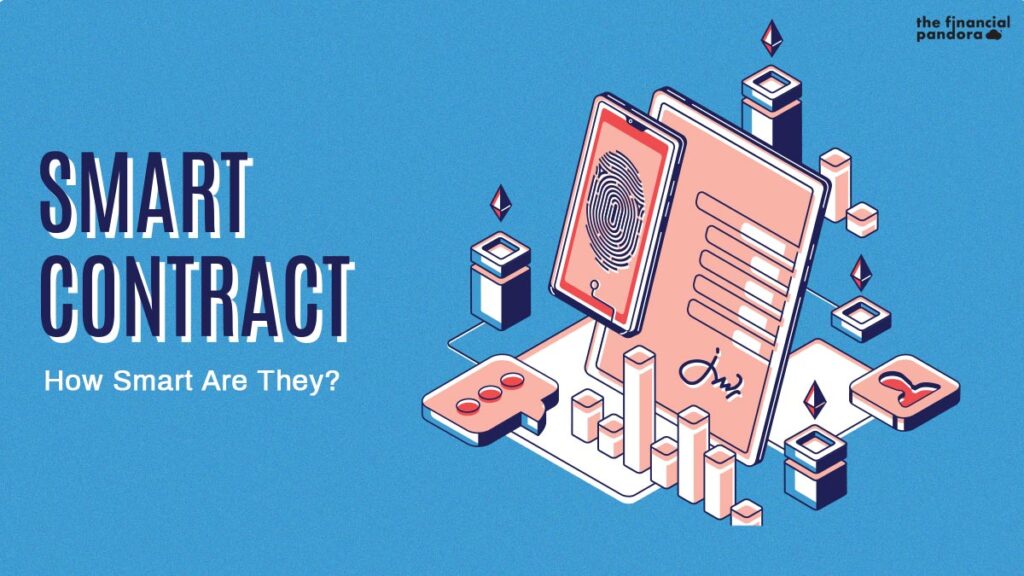Smart contracts are block chain-based programs that execute when specific criteria are met. They’re usually used to streamline the performance of a deal so that all parties can be sure of the conclusion right away, without the need for any intermediaries or idle time.
How does it work?
Straightforward “if/when…then…” lines are inserted into code on a blockchain to make innovative transactions work. When pre-set circumstances are satisfied and validated, the activities can then be carried out by a distributed network. These activities could include transferring payments to the appropriate parties, licensing a vehicle, providing alerts, or delivering a citation. When this transaction is complete, the blockchain is updated. That means the results are only visible to those given permission, and activity then can’t be modified.
There can be as many specifications as needed in a smart contract that will help convince the stakeholders that the task will be executed correctly. Participants must agree on how transactions and associated data have to be represented on the blockchain, and decide on the “if/when…then…” principles that govern those activities, investigate all possible exceptions, and design a framework for resolving disputes to establish the terms.
A developer can then code the smart contract. However, firms that use blockchain for business are increasingly providing templates, internet applications, and other web tools to make intelligent contract construction easier.
Critical Parts of a Smart Contract:
Signatories, topics, and precise terms are all necessary components of smart contracts. First and foremost, the signatories, two or more parties who use the contract and grant their ultimate approval of the proposed terms by electronic signatures. Second, the topic of the agreement, which is restricted to the brilliant deal’s surroundings exclusively. Finally, the intelligent contract’s precise terms. They must be stated in logical detail and executed in a software package consistent with the block chain used by smart contracts. The agreement will complete itself based on these conditions.
Potential Uses of Smart Contracts:
1. Government Voting system:
Smart contracts would provide an environment to make the voting system less susceptible to manipulation. Voting through smart contracts would be ledger protected and extremely difficult to decode; this would reduce malpractice and voter fraud.
2. Healthcare:
In the area of health care, blockchain can store the encoded health records of patients with the help of a private key. For privacy reasons, Only specific individuals would be granted access to these records. On a similar note, research can be conducted confidentially and securely with the help of smart contracts. Hospitals can store receipts of patients on the block chain and then automatically share them with insurance companies to prove their service. Moreover, the ledger can also be used for different activities such as supervising drugs, managing supplies, etc.
3. Supply Chain Management:
It is one area where smart contracts might be helpful. Smart contracts are trying to straighten out the flow of commodities and restore trust in trade by making supply chains more accessible. As products enter the system, smart contracts can establish ownership rights, establishing who is in charge of the product at any particular time. Until it reaches the consumer, the end product can be checked at every stage of the delivery process.
4. Financial Services:
Smart Contract helps revolutionize traditional finance in multiple ways; for instance, in insurance claims, they perform error checking routing and transfer payments to the user if everything is appropriate. Smart contracts incorporate several tools such as bookkeeping and eliminating infiltration and manipulation of books of accounts. They help in trade clearing, wherein funds are transferred once the amounts of trade settlers are calculated. They can also facilitate cross-border transactions and international trade.
Limitations of Smart Contracts:
1. Inflexibility:
Automation of all kinds of commercial relationships is very complex. Accounting for all possible contingencies or situations is not possible in a contract, both digital or written. Conventionally parties are forced to seek judicial assistance to help them resolve contractual disagreements caused by unforeseen circumstances.
2. Issues of Scalability:
Blockchains are not scalable as their centralized counterparts. The problem occurs when people use the technology on a large scale. The system slows down, and it takes more time to process transactions than the traditional methods.
3. Code is Law:
Data immutability has always been one of the biggest problems faced by block chain. The problem it faces is that data once written cannot be changed or deleted, and therefore, this threatens his right to privacy, breaking it into pieces.
With technology rapidly expanding, the world is on the brink of a revolutionary change that we believe will be pioneered by blockchain and the plethora of services it offers. Smart Contracts are on the cusps of breaking through traditional methods of conducting business and will bring about mammoth changes in serval industries. With the technology yet in its very nascent stages of development, we certainly think that smart contacts will have a massive impact on the future of finance and business.
Follow Us @




